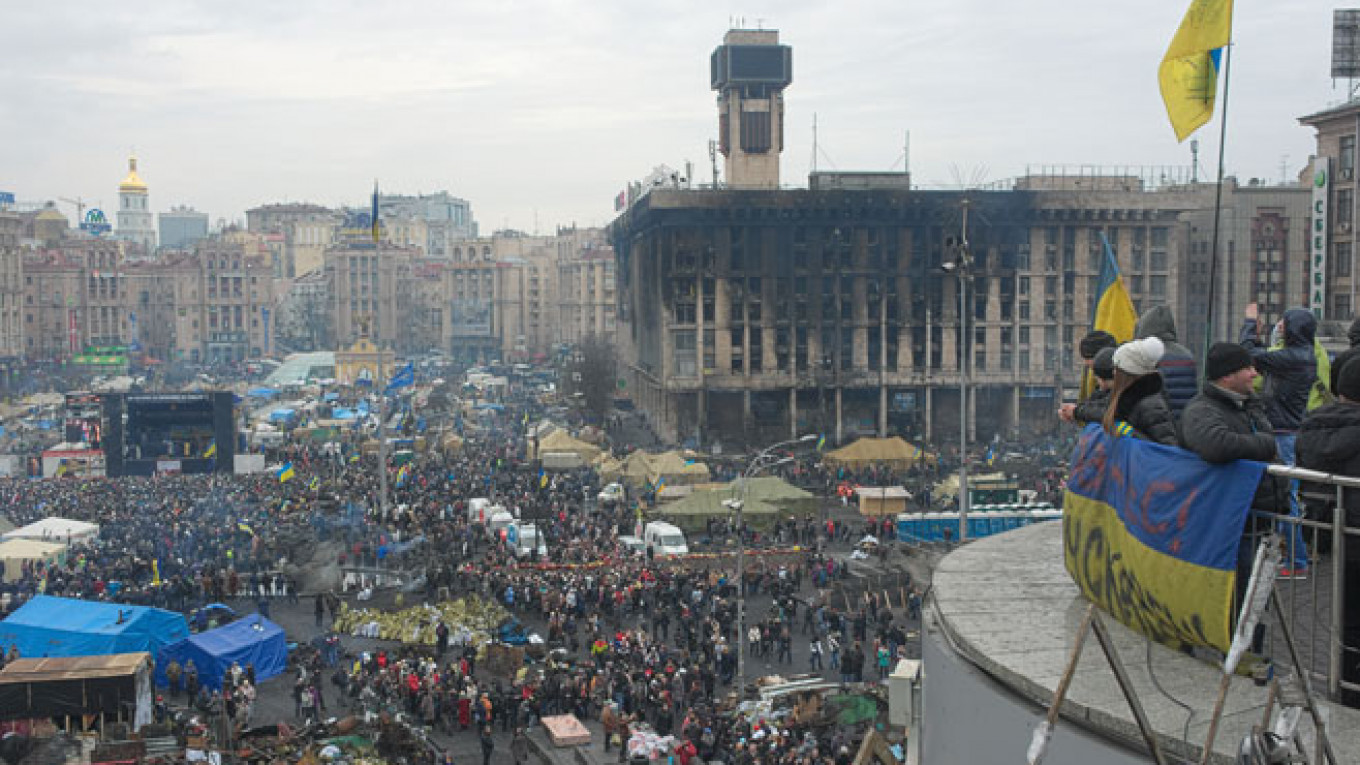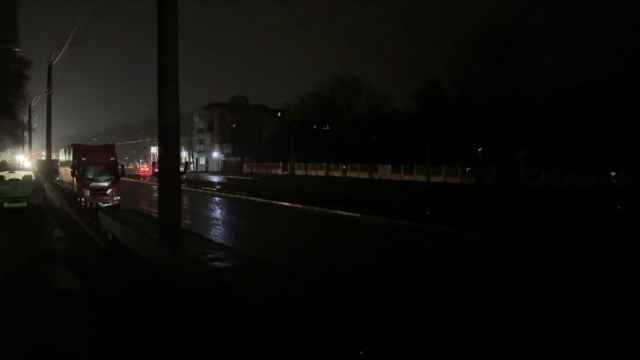"Color revolutions" of the kind that toppled Ukraine's previous pro-Russian president last year are financed by the proceeds of selling drugs, a Russian anti-drug official was cited as saying Tuesday by Interfax.
Vladimir Kalanda, deputy head of the Federal Drug Control Service (FSKN), also accused "sectarian" nongovernmental organizations ostensibly involved in drug rehabilitation efforts of being among the most active participants of the Maidan movement that spearheaded Ukraine's revolution, adding that they now make up the "shock troops" of the Ukrainian army, the news agency reported.
The connection between the purported funding from drug sales and the involvement of drug rehabilitation activists was not immediately clear.
Kalanda's claims echoed those made by his boss, FSKN head Viktor Ivanov, in December last year.
Ivanov claimed that the Ukrainian revolution was enacted by brainwashed methadone addicts— products of UN-endorsed methadone replacement therapy, which Russia has condemned as a form of drug addiction.
The FSKN also accused Ukraine in February of organizing drug cartels to generate funding for the war against pro-Russian separatists, blaming the same cartels for the proliferation of lethal synthetic drugs in Russia.
"Color revolutions" is the term given to the generally peaceful large-scale anti-government demonstrations and uprisings that have taken place in former Soviet countries including Ukraine and Georgia.
The Kremlin has repeatedly said that foreign forces seeking to foment a color revolution in Russia are a threat to the country's stability.
President Vladimir Putin said at a Security Council meeting in November that color revolutions in the former Soviet Union should serve as a "lesson and warning" and that everything should be done to prevent one from occurring in Russia.
A Message from The Moscow Times:
Dear readers,
We are facing unprecedented challenges. Russia's Prosecutor General's Office has designated The Moscow Times as an "undesirable" organization, criminalizing our work and putting our staff at risk of prosecution. This follows our earlier unjust labeling as a "foreign agent."
These actions are direct attempts to silence independent journalism in Russia. The authorities claim our work "discredits the decisions of the Russian leadership." We see things differently: we strive to provide accurate, unbiased reporting on Russia.
We, the journalists of The Moscow Times, refuse to be silenced. But to continue our work, we need your help.
Your support, no matter how small, makes a world of difference. If you can, please support us monthly starting from just $2. It's quick to set up, and every contribution makes a significant impact.
By supporting The Moscow Times, you're defending open, independent journalism in the face of repression. Thank you for standing with us.
Remind me later.






